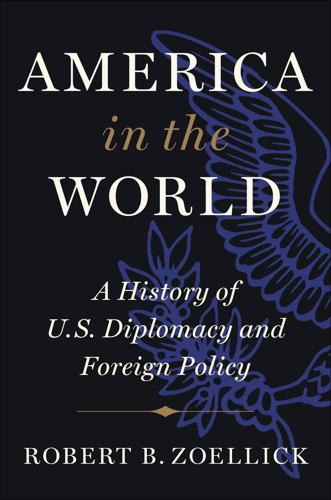
America in the World: A History of U.S. Diplomacy and Foreign Policy
by
Robert B. Zoellick
Published 3 Aug 2020
Ironically and tragically, this most political of U.S. presidents failed to recognize that the American public would abandon a costly war fought just for credibility. Johnson’s war turned out to be the opposite of practical—it descended into senseless sacrifice. CHAPTER 15 Richard Nixon and Henry Kissinger American Realpolitik The Week That Changed the World On February 17, 1972, President Richard Nixon left Andrews Air Force Base for the first leg of his long trip to China. As Air Force One took off, he still did not know if he would meet with Chairman Mao Tse-tung, the legendary Communist leader of China.1 Nixon, the ardent anti-Communist, had prepared with care.
…
In 1974, Mao told British prime minister Edward Heath that Nixon “knows what he stands for, as well as what he wants, and has the strength of mind to get it.” But Mao was not moved by Kissinger’s charm and sparkling intellect. He found Kissinger “just a funny little man. He is shuddering all over with nerves every time he comes to see me.”13 Nixon concluded that his visit “was the week that changed the world.”14 He was right. Indeed, the turn he began still shakes the world. People around the globe will continue to ask whether the two great powers of the Pacific can work together. History and Realpolitik Both sides approached one another cautiously. Each presumed that it was the center of the world.
…
Vannevar Bush and the differential analyzer, ca. 1935. (30) “General of Physics.” Vannevar Bush, Time magazine cover, April 3, 1944. (31) The crisis manager perceives Berlin as an asset. JFK in Berlin, June 26, 1963. (32) Vietnam: learning from defeat. LBJ and McNamara, n.d. (33) “The week that changed the world.” Nixon shakes hands with Mao, February 21, 1972. (34) Realpolitik and triangular diplomacy. Henry Kissinger shakes hands with Mao in Beijing, 1973. (35) Setting out a strategy to win the Cold War through a contest of ideas. Reagan addresses the British Parliament in the Royal Gallery at the Palace of Westminster in London, June 8, 1982. (36) Reagan with Gorbachev in Red Square, May 31, 1988.
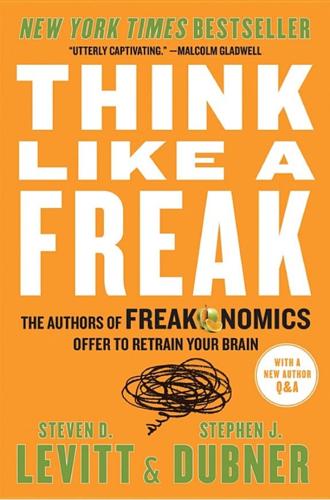
Think Like a Freak
by
Steven D. Levitt
and
Stephen J. Dubner
Published 11 May 2014
If the Chinese leadership was willing to receive Ping-Pong ambassadors, why not a real one? Kissinger’s visit led to two developments: an invitation for the Chinese Ping-Pong team to visit the United States and, more substantially, Nixon’s historic trip to China. It was, as Nixon later called it, “the week that changed the world.” Would all this have happened without the Ping-Pong diplomacy that so coyly shifted the us-versus-them framework? Perhaps. But Premier Zhou for one acknowledged just how effective the move was: “Never before in history has a sport been used so effectively as a tool of international diplomacy.”
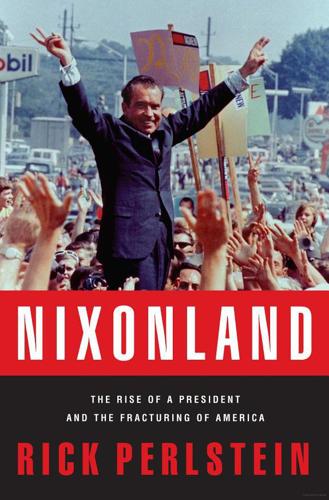
Nixonland: The Rise of a President and the Fracturing of America
by
Rick Perlstein
Published 1 Jan 2008
Ronald Reagan explained to a Philadelphia housewife with whom he’d been a pen pal since the 1940s, “I think the Red Chinese are a bunch of murdering bums, but in the big chess game going on, where Russia is still head man on the other side, we need a little elbow room.” The next Gallup poll affirmed 83 percent of Republicans still favored Nixon’s renomination—far, far better than LBJ was doing in February of 1968. Richard Nixon was euphoric. “This was the week that changed the world,” he boomed in his toast on the final day, at the Shanghai Exhibition Hall. The political situation back home was never far from Nixon’s thoughts. The third evening, as he sat in the stands at a sports exhibition, while Bob Haldeman was admiring the advance work—one section for soldiers in green uniforms, another for soldiers in blue uniforms, one for athletes in red sweat suits, another for athletes in blue sweats, all cheering on cue for the television cameras—Chou En-lai was quietly presented a folderful of papers.
…
Samuel Lubell, the prescient: “The 18-year-old Vote Could Beat Nixon in ’72,” Look, July 13, 1971. Haldeman started worrying: Dean, Blind Ambition, 40. “Jesus Christ, John!”: Ibid., 44. “I have requested this television time”: PPP 231, July 15, 1971. Nixon calling conservatives “the animals”: Margaret MacMillan, Nixon and Mao: The Week That Changed the World (New York: Random House, 2007), 259. Birth of White House secret police: Kutler, Wars of Watergate, 112–14; Reeves, President Nixon, 349; Anthony Lukas, Nightmare: The Underside of the Nixon Years (New York: Viking, 1976), 68–108. An acquaintance described Krogh: Ibid., 73. G. Gordon Liddy: Ibid., 86; Reeves, President Nixon, 349; G.
…
“The Muskie bandwagon”: One Bright Shining Moment (Stephen Vittoria, dir., 2005). Dirty tricks: Schell, Time of Illusion, 218–22, 289; Robert Novak, The Prince of Darkness: 50 Years of Reporting in Washington (New York: Crown Forum, 2007), 218; Reeves, President Nixon, 413. China trip: Margaret MacMillan, Nixon and Mao: The Week That Changed the World (New York: Random House, 2007); Reeves, President Nixon, 432–57; Julie Nixon Eisenhower, Pat Nixon: The Untold Story (New York: Kensington Publishing, 1987), 133–37; William Burr, ed., The Kissinger Transcripts: The Top-Secret Talks with Beijing and Moscow (New York: New Press, 1998), 59–65.
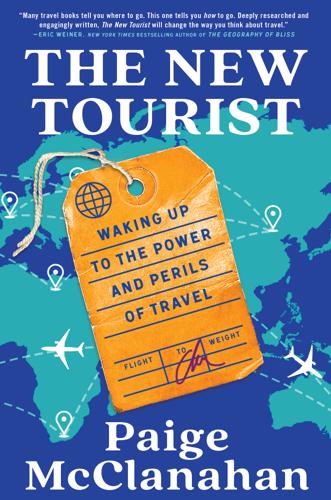
The New Tourist: Waking Up to the Power and Perils of Travel
by
Paige McClanahan
Published 17 Jun 2024
The same year they set off on their adventure, U.S. president Richard Nixon made his famous eight-day visit to China, ending twenty-five years of frozen relations between the powers that would dominate geopolitics over the next half century. Six years after that widely televised trip—which Nixon called “the week that changed the world”—China would open its borders to international tourists for the first time since 1949. Closer to home for Tony and Maureen, the Iron Curtain remained drawn across Europe, but tourism was making that barrier increasingly porous. By the mid-1960s, more than a million Westerners were vacationing in the USSR every year, and tourist industry connections were deepening across the Cold War divide.5 But international travel remained highly exclusive: in the United States, the percentage of people who carried a passport would remain in the single digits well into the 1990s,6 and for all but the most adventurous tourists, travel agents remained indispensable—and often expensive—gatekeepers to traveling overseas.
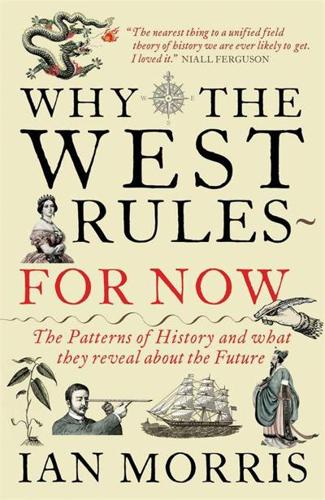
Why the West Rules--For Now: The Patterns of History, and What They Reveal About the Future
by
Ian Morris
Published 11 Oct 2010
He was thrown one by perhaps the least likely person on earth—the United States’ virulently anti-Communist president Richard Nixon. Nixon saw a deal with China as a way to outflank the Soviets in the Cold War, and in 1972, after much back-channel diplomacy, he flew to Beijing and shook Mao’s hand. “This was the week that changed the world,” Nixon crowed, and in some ways he was right. The prospect of a Washington-Beijing axis terrified Brezhnev so much that within three months of going to China, Nixon was sitting in Moscow making deals. Mao profited almost as much. By meeting Nixon he signaled support for the pragmatists who hungered after Western technology and opposition to the radicals who had gutted China’s educated classes.
…
Mao’s Last Revolution. Cambridge, MA: Harvard University Press, 2006. MacKellar, Landis. “Pandemic Influenza: A Review.” Population and Development Review 33 (2007), pp. 429–51. MacMillan, Margaret. Paris 1919: Six Months That Changed the World. New York: Random House, 2002. ———. Nixon and Mao: The Week That Changed the World. New York: Random House, 2008. MacMullen, Ramsay. Christianizing the Roman Empire. New Haven, CT: Yale University Press, 1984. ———. Corruption and the Decline of Rome. New Haven, CT: Yale University Press, 1988. Maddison, Angus. The World Economy: Historical Statistics. Paris: Organisation for Economic Co-operation and Development, 2003. ———.
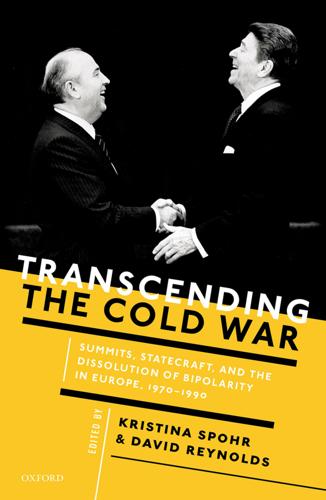
Transcending the Cold War: Summits, Statecraft, and the Dissolution of Bipolarity in Europe, 1970–1990
by
Kristina Spohr
and
David Reynolds
Published 24 Aug 2016
Nixon and Zhou Enlai at a gymnastic show in Beijing, 23 February 1972 (AP) After six days of intense negotiations between Nixon and the communist leaders and among the bureaucrats of the two countries, the president stood up again on 27 February at a banquet in Shanghai. ‘We have been here a week’, he declared. ‘This is the week that changed the world.’ Kissinger took the same view when reflecting on the summit a few years later: the leaders of China and America had come to the conclusion ‘that they could conduct compatible foreign policies, revolutionizing world diplomacy. The bipolarity of the postwar period was over.’3 Were Nixon and Kissinger right?
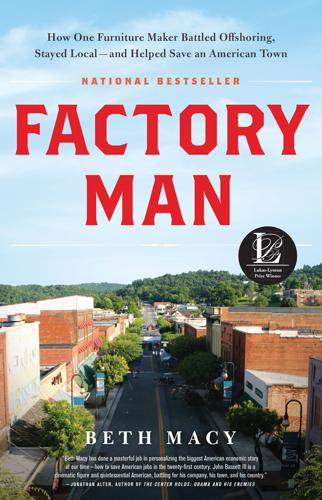
Factory Man: How One Furniture Maker Battled Offshoring, Stayed Local - and Helped Save an American Town
by
Beth Macy
Published 14 Jul 2014
But Naomi started working in the 1970s, when the great changes sweeping the nation were finally reaching this remote corner of smokestacks and red-clay earth. It was race relations and the war in Vietnam that consumed most Americans when President Richard Nixon made the bold, historic move of meeting with Chairman Mao Tse-tung in 1972, thawing relations with the People’s Republic of China for the first time in twenty-five years. “This was the week that changed the world,” Nixon declared after leaving behind an American redwood sapling as a symbol of mutual peace, prosperity, and international trade. Spilman had more immediate concerns than China on his mind. Up in his office at the Taj Mahal, he ordered Frank Snyder to bring the company into EEOC compliance and make the lawsuit go away, echoing the mandate of Mr.

May We Be Forgiven
by
A. M. Homes
Published 14 Jun 2012
Together we walk to the parking lot. As I’m bidding her farewell, she pushes me between two parked cars, throws her purse over her shoulder, and gropes my crotch. “You need me,” she says, giving the goods a hard pump. “I am your future.” Monday’s class was described in my syllabus as “Nixon in China: The Week That Changed the World.” The line is a direct quote from the great man himself, describing his 1972 trip to China. The trip was actually an eight-day, carefully orchestrated, made-for-television view behind the Bamboo Curtain. An incredibly unlikely diplomatic achievement pulled off by a staunch anti-communist—in fact, when Nixon first presented the idea to his own men, they thought he’d lost his chips.
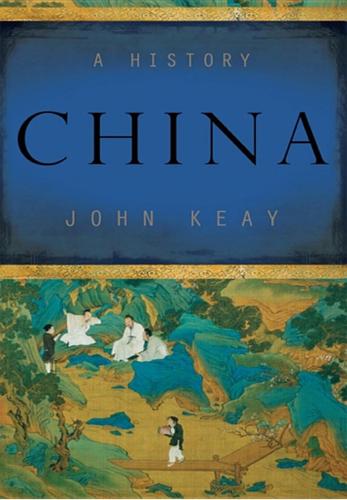
China: A History
by
John Keay
Published 5 Oct 2009
exclaimed a Mao loyalist; disbelief was widespread.5 But three months later Henry Kissinger accepted an invitation to secret talks. These were soon repeated, at which point the United Nations invited the People’s Republic to replace the Republic (ie, Taiwan) as China’s representative. Then in February 1972 came what President Nixon would call ‘the week that changed the world’. His historic visit included a trip to the Great Wall and a meeting with the Chairman. Neither side gave much ground on Taiwan, but Beijing undertook to hustle Hanoi towards a settlement, and Washington gave assurances about no hostile collaboration with the Soviet Union. There was little discussion of trade, nor as yet was there much to discuss.
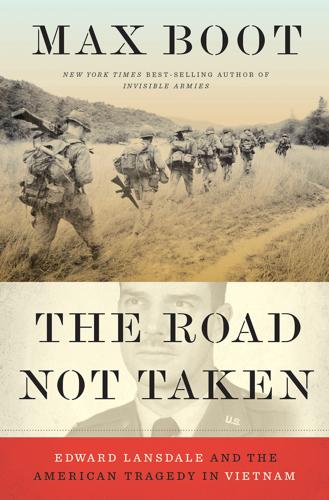
The Road Not Taken: Edward Lansdale and the American Tragedy in Vietnam
by
Max Boot
Published 9 Jan 2018
Embers of War: The Fall of an Empire and the Making of America’s Vietnam. New York: Random House, 2012. London, Jack. The Iron Heel. New York: Regent Press, 1908. Lovell, Stanley P. Of Spies and Stratagems. Englewood Cliffs, NJ: Prentice-Hall, 1963. MacMillan, Margaret. Nixon in China: The Week That Changed the World. New York: Penguin, 2006. Manchester, William. The Death of a President: November 20–November 25, 1963. New York: Little, Brown, 2013. Marlantes, Karl. Matterhorn: A Novel of the Vietnam War. New York: Atlantic Monthly Press, 2010. Marquez, Adalia. Blood on the Rising Sun: The Japanese Occupation in the Philippines.
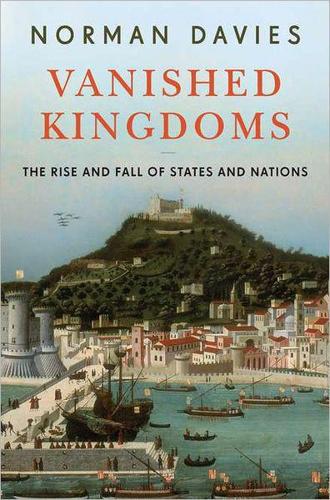
Vanished Kingdoms: The Rise and Fall of States and Nations
by
Norman Davies
Published 30 Sep 2009
Laar, War in the Woods: Estonia’s Struggle for Survival, 1944–56 (Ann Arbor, 1992). 61. Alexander Solzhenitsyn, Invisible Allies (New York, 1997), pp. 46–64. 62. Estonia, 1940–1945, p. 1031. 63. Robert Litwak, Détente: American Foreign Policy, 1969–76 (Cambridge, 1986). 64. Margaret MacMillan, Nixon and Mao: The Week that Changed the World (New York, 2006). 65. Leonard Shapiro, The Government and Politics of the Soviet Union (London, 1970); Martin Malia, The Soviet Tragedy: A History of Socialism in Russia, 1917–91 (New York, 1994); Alec Nove, Stalinism and After (Boston, 1989). 66. T. Parming and E. Jaervesoo, Case Study of a Soviet Republic: The Estonian SSR (Boulder, Colo., 1978). 67.

Vanished Kingdoms: The History of Half-Forgotten Europe
by
Norman Davies
Published 27 Sep 2011
Laar, War in the Woods: Estonia’s Struggle for Survival, 1944–56 (Ann Arbor, 1992). 61. Alexander Solzhenitsyn, Invisible Allies (New York, 1997), pp. 46–64. 62. Estonia, 1940–1945, p. 1031. 63. Robert Litwak, Détente: American Foreign Policy, 1969–76 (Cambridge, 1986). 64. Margaret MacMillan, Nixon and Mao: The Week that Changed the World (New York, 2006). 65. Leonard Shapiro, The Government and Politics of the Soviet Union (London, 1970); Martin Malia, The Soviet Tragedy: A History of Socialism in Russia, 1917–91 (New York, 1994); Alec Nove, Stalinism and After (Boston, 1989). 66. T. Parming and E. Jaervesoo, Case Study of a Soviet Republic: The Estonian SSR (Boulder, Colo., 1978). 67.